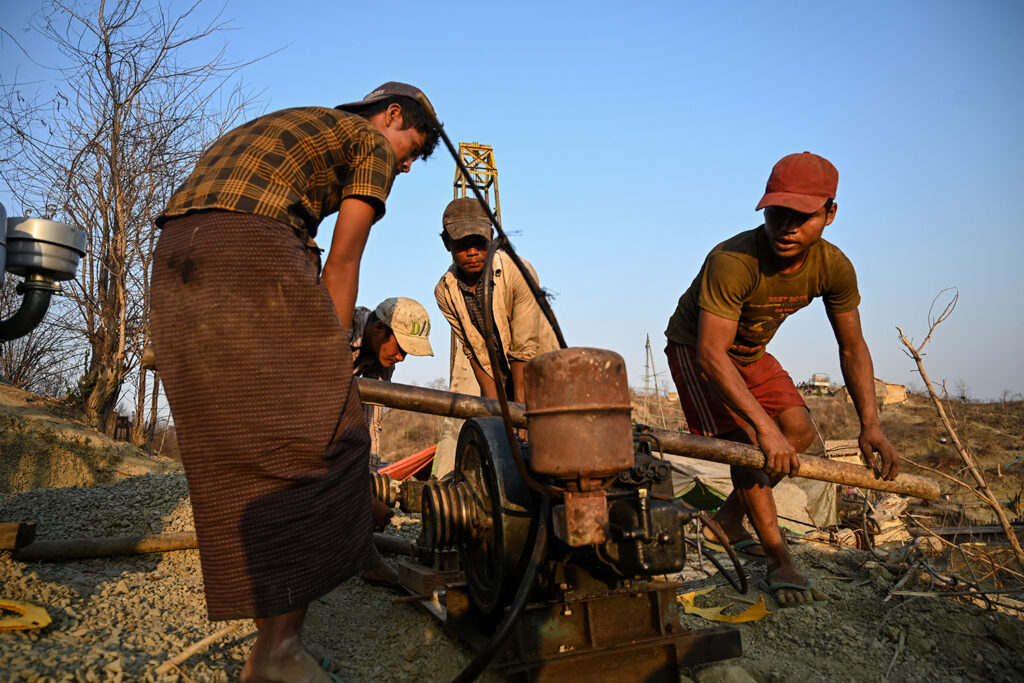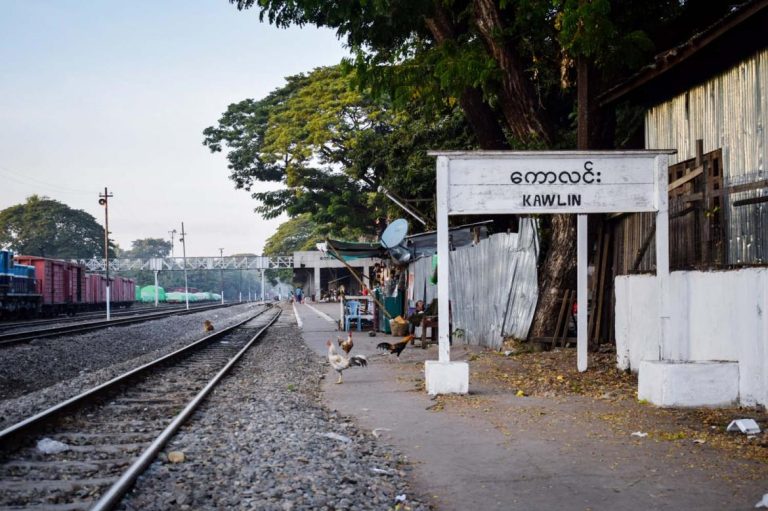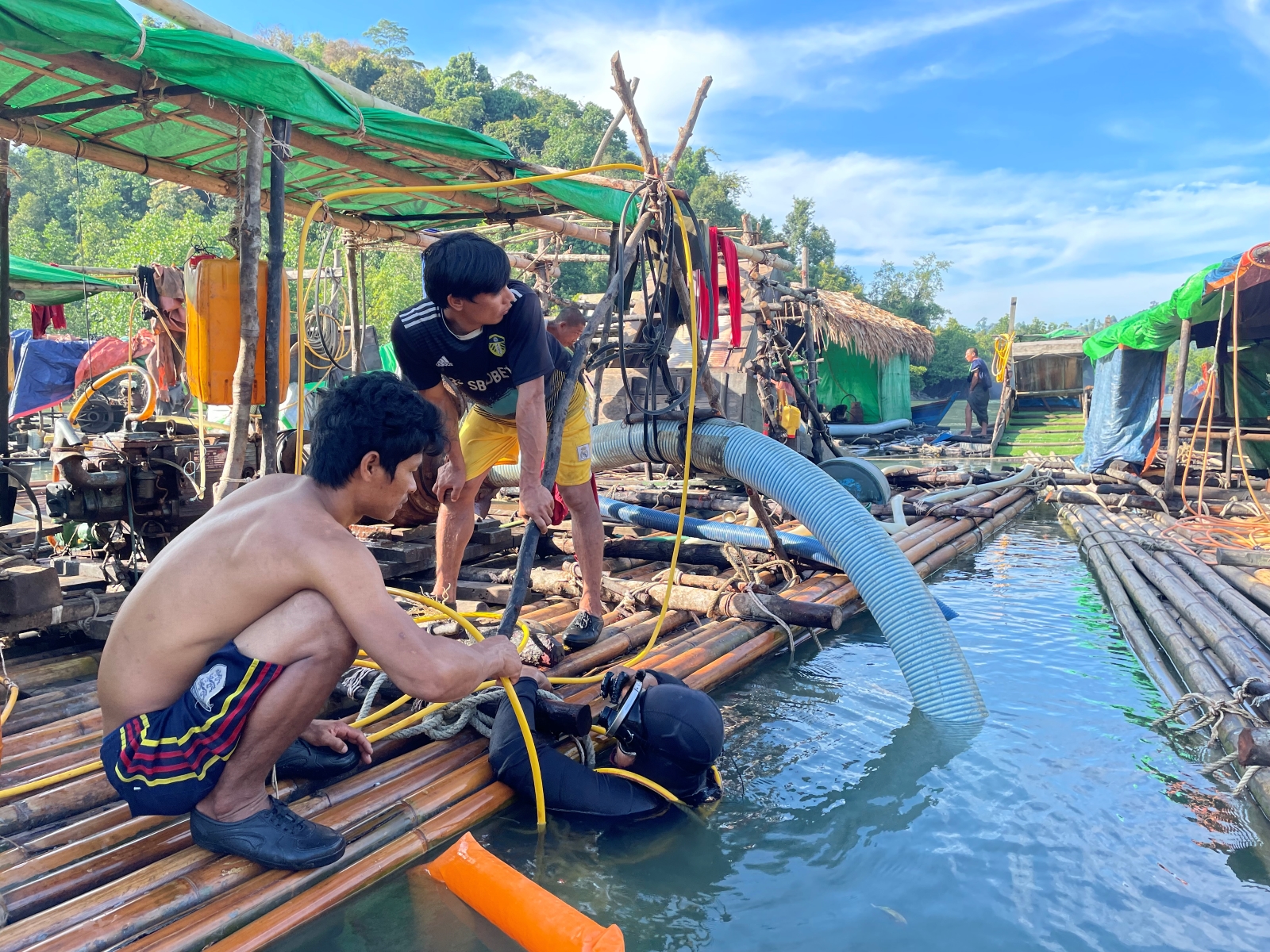The junta’s sudden ban on mostly small-scale oil producers in the Dry Zone has destroyed the livelihoods of hundreds of thousands, in a move industry sources suspect is aimed at denying funds to the resistance.
By FRONTIER
The junta has shut down thousands of mostly small-scale oil wells in Myanmar’s central Dry Zone, whose economy had already been devastated by conflict following the 2021 military coup.
Well owners suspect the regime is trying to deny funding to armed resistance groups, but they say the real victims are hundreds of thousands of oil workers and people providing support services, who lost their livelihoods virtually overnight.
In Magway Region on June 5, the junta banned production in oil fields at six villages in Minhla Township and four villages in Thayet Township.
“All the businesses related to oil production were stopped. Small-scale well owners employed between two and 50 workers. Transport and refinery workers are also affected, leaving hundreds of thousands of people jobless,” U Soe Tint*, who ran a well in Minhla, told Frontier.
There are no accurate figures for a sector that is largely informal, but industry sources say about 300,000 people have been left without income.
A junta directive issued on May 20 stopped production at Tetma oil field, in Mandalay Region’s Nyaung-U Township, home to tens of thousands of workers.
One of them is Ko Kyi*, who had also operated oil wells across the Ayeyarwady River in Magway’s Thayet Township.
Ko Kyi began working in the oil industry in 2013, when he left his home in Magway’s Sinbaungwe Township after increasing temperatures every year made his farm unproductive.
He started out in small-scale oil fields using artisanal methods. The work was backbreaking but he managed to make a living out of it.
In 2018, Ko Kyi formed a partnership with four friends and they took out a loan to operate wells at Thayet. Two years later, the National League for Democracy government issued operating licences for 92 blocks at the Tetma field as a regional development project. Ko Kyi and his four partners seized the opportunity to expand their business and were granted a licence for one of the blocks.
When the shutdown order was issued in May this year, Ko Kyi and his partners owned seven wells in Tetma and five at the Ta Zi Gauk field in Thayet. But despite these holdings, they were still burdened with debt.
Ko Kyi said well owners suspended production during the COVID-19 pandemic when the global oil price fell and barrels hit a low of K32,000 in May 2020. While production was suspended, owners focused on drilling new wells while taking out loans, he said.
“When crude oil prices recovered in late 2020 my partners and I resumed production but we have not yet cleared our debts,” he said.
On returning to his home village, Ko Kyi was at a loss over what to do next. He said he couldn’t afford to set up a new household or seek work abroad. “Going to Thailand will cost about K2.8 million [about US$930 at the unofficial market rate],” he told Frontier in mid-June. But Ko Kyi needs to keep paying the K70,000-a-month medical bills of his 39-year-old brother, who is crippled by arthritis, so foregoing work is not an option.
“I’m thinking about going to Laukkai with friends to find a job,” he said, referring to the town on the Chinese border in Shan State’s Kokang Self-Administered Zone, where many internal migrants work at casinos, hotels, restaurants and farms.
“My four partners have families,” said Ko Kyi, who is single. “We have each lost between K20 million and K30 million because of the shutdown. We wanted to succeed, but now we’re in debt.”

Funding the resistance?
The junta’s failure to justify the closures has fed speculation about its motives. Oil well owners told Frontier they think the closure of the wells in central Myanmar was part of a carefully planned strategy to shut down the entire onshore oil industry, because the regime suspects it’s funding the resistance.
On May 4, the Petroleum Product Supervision and Inspection Department under the junta’s energy ministry issued a directive, seen by Frontier, to close all authorised distillation plants at fields in Ayeyarwady, Bago, Magway, Mandalay and Sagaing regions.
“After the distillation plants were suspended, permission to produce and transport oil was also withdrawn,” said Daw Phyu*, who owns about 50 oil wells in Mandalay Region. “Because we had no advance notice, it created a lot of trouble.”
Industry sources say the junta began targeting oil fields in Sagaing and Magway last year after swathes of territory in the two regions came under the control of People’s Defence Forces, anti-junta resistance groups that emerged after the coup.
In July last year, more than 300 wells were torched by junta forces in Magway’s Myaing and Pauk townships alone. Residents said the wells were targeted because the military suspected the owners of donating to PDFs.
At a news conference on July 26 last year, junta spokesperson Major-General Zaw Min Tun said PDFs were receiving money from the owners of the hand-dug artisan wells. Asked by a reporter how the regime would respond, he replied cryptically, “We are doing what we have to do,” without drawing an explicit connection to the attacks.
Ko Mya Aung*, a member of Myaing PDF, believes the junta closed the wells in Magway to hinder resistance groups. But though he acknowledges they were a source of revenue, he said taxes collected from them were small. “Shutting down the wells has not greatly affected us, but it has really hurt the people in the industry,” he told Frontier.
He added that oil was still being produced in areas of Pauk and Myaing townships that remain under PDF control, but donations from operators did little to relieve his group’s financial problems.
“In fact, we receive next to no support from the people and we’re struggling. PDF comrades also seldom get support from the Ministry of Defence under the National Unity Government and we face difficulties with food and shelter,” he said, referring to the parallel administration set up by lawmakers ousted in the coup. “We can’t even use cell phones because we can’t afford the charges. The revolution may be long and if we don’t get enough support, we may face a big struggle.”
Soe Tint, the owner of a well in Minhla, estimated that no more than 25 percent of businessmen in the industry are providing support to resistance groups.
“That 25pc and the recent shutdown may or may not matter to the progress of the revolutionary forces, but at the same time, the State Administration Council [as the junta calls itself] will not receive taxes from the wells. Both sides are affected but it is the local people who have been hit hardest,” he said.

‘With nothing to eat, they’ll turn to theft’
The closures may further depress the economy and contribute to a shortage of fuel, according to Mr Guillaume de Langre, a former adviser to the Ministry of Electricity and Energy of the NLD government.
“The military itself and the country need the onshore oil production, especially as sanctions pile up. If onshore wells stop producing, that will probably cause an oil shortage. The military might forcibly take control of the wells. They’ve already created an electricity and gas shortage and I wouldn’t underestimate the junta’s incompetence,” he told Frontier.
Meanwhile, well owners and workers face a deeply uncertain future.
“The shutdown order demanded that we move out within three days and we had to work day and night without sleep to remove our equipment and other property because we feared what they would do to us,” said Ko Zaw*, who owns a well in the Tetma field.
“When we appealed for an extension, we were given another two days, so we had to move out within five days. The owners of large blocks with many wells had to spend about K30 million hiring trucks and labour to move their assets,” he added, explaining that the cost of hiring a day labourer jumped from K15,000 to K40,000.
Other well owners at Tetma said after they moved out, villagers came at night and stole anything that was left behind, including barrels of oil.
But with the biggest source of local employment gone, this loot won’t sustain them for long.
“Local people live hand to mouth,” said Soe Tint. “With nothing to eat, they’ll turn to theft to get by. The oil field workers who came from far away will also do anything to solve their livelihood problems. This could lead to more chaos.”
Ko Kyi said well operators had stockpiled crude because they hoped that prices would rise after the Thingyan traditional new year festival in mid-April. But when the shutdown orders were issued, most people in the industry were caught unprepared and had not purchased the barrels they needed to transport and sell their stockpiles before leaving.
At the Ta Zi Gauk field in Thayet, this raised the cost of an empty barrel to K45,000, compared to only K20,000 normally. This left little room for profit in the ensuing sell-off of oil at very low prices.
“When we filled an empty barrel with crude, we could only sell it for K50,000. I sold 10 barrels to have enough money to buy food,” Ko Kyi said. “I didn’t even have enough for the bus fare to return home and had to ask my family to send me the money.”
*indicates a pseudonym for security reasons







